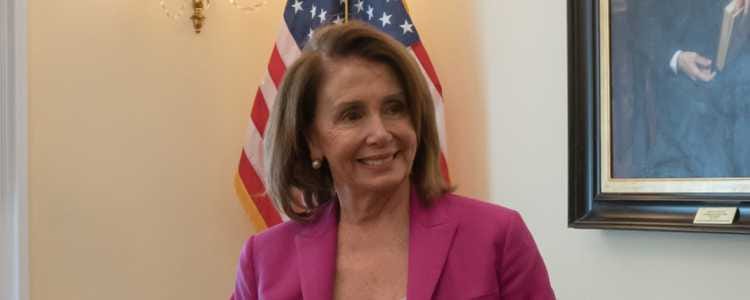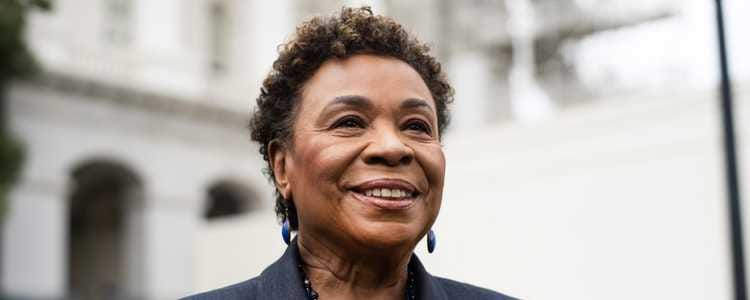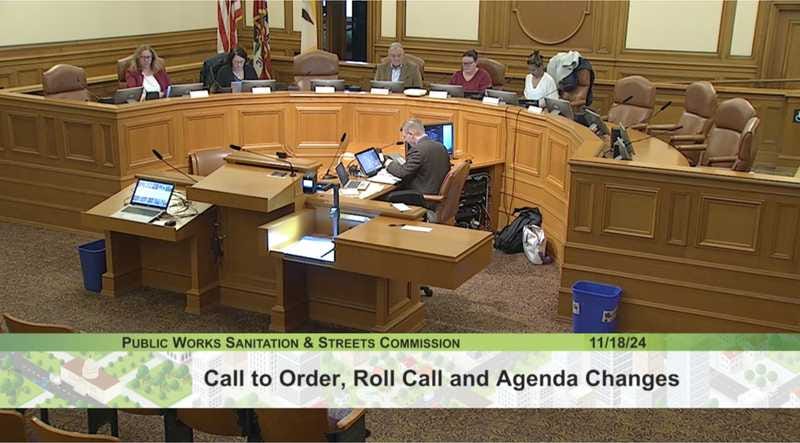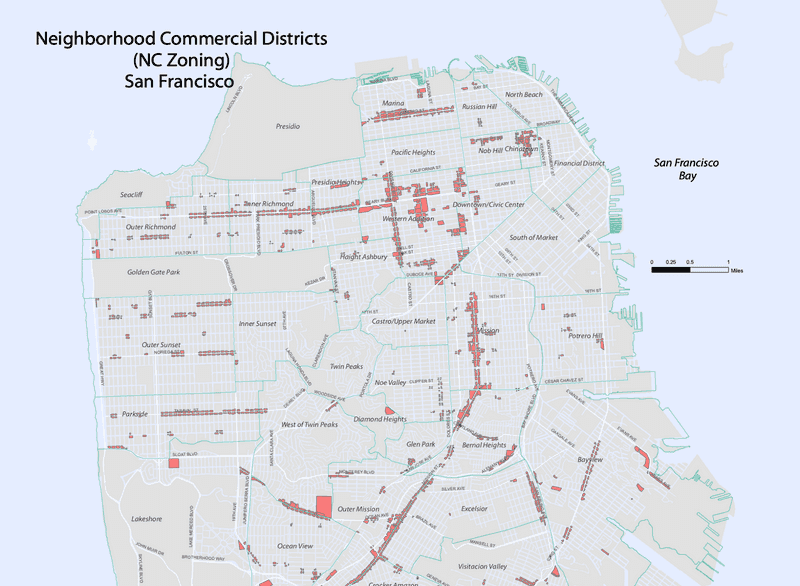SFUSD nears a balanced budget
PLUS: SFMTA management layoffs aim to ease massive deficit
What You Need To Know
Here’s what happened around the city for the week of April 20, 2025:
- SFUSD nears a balanced budget
- SFMTA management layoffs aim to ease massive deficit
- San Francisco Democrats propose voluntary age limit for politicians
- City workers’ return-to-office mandate delayed to August after union pushback
- Barbara Lee wins Oakland mayoral race, defeating Loren Taylor
Recent & upcoming openings:
- Coffee Movement & Side A harmonize in the Mission
Research:
- San Francisco has the longest city charter in America
SFUSD nears a balanced budget
Published April 23, 2025
San Francisco Unified School District is close to eliminating its $114 million budget deficit after scaling back the back-office budget, voluntary early retirements, and some layoffs. After facing a state takeover, SFUSD is just $10M short of its goal and is on track to closing the gap.
The Facts
San Francisco Unified School District (SFUSD) is on the verge of solving its $114 million budget deficit, with only $10 million left to cut, according to the SF Chronicle. To achieve this, the district is implementing significant staff reductions: nearly 500 employees, including over 300 educators, are leaving through early retirement or layoffs. Additionally, 75 vacant positions are being eliminated. Additionally, the district is planning to replace its over-budget and error-prone payroll system in July.
The Context
SFUSD has been grappling with financial challenges due to years of overspending and declining enrollment. The district had previously faced state oversight and the risk of insolvency. The current budget cuts are part of a broader effort to stabilize finances and avoid future state intervention.
The GrowSF endorsements for School Board in November 2024 focused on the need for fiscally responsible people to get the district back on track. They have been working well with the district's new superintendent, Maria Su, who has also emphasized the need for fiscal responsibility and ending the cycle of deficit spending.
The GrowSF Take
We're thrilled with the performance of our new School Board members and Superintendent Maria Su. It shows that elections really do have consequences, and getting the right people in charge makes all the difference. San Francisco has come a long way since we recalled three incompetent members of the Board of Education in 2022!
SFMTA management layoffs aim to ease massive deficit
Published April 24, 2025
SFMTA Director Julie Kirschbaum fired 12 managers this week in a major leadership shake-up, aiming to eliminate duplication and confusion as the agency faces a massive budget deficit.
The Facts
SFMTA Director Julie Kirschbaum laid off 12 senior managers as part of an effort to address a projected $322 million budget shortfall. The cuts aim to consolidate overlapping roles, streamline the organizational structure, and reduce administrative expenses. Kirschbaum emphasized these layoffs are necessary to protect frontline transit services from deeper budget cuts, focusing instead on reducing management overhead (SF Chronicle).
The Context
SFMTA faces severe financial strain, projecting a $322 million budget shortfall driven primarily by reduced ridership and lower fare revenues post-pandemic. Director Julie Kirschbaum’s decision to lay off 12 senior managers is part of broader efforts to stabilize the agency’s finances by cutting administrative overhead rather than frontline services.
Kirschbaum's restructuring follows increased scrutiny from city leadership and transit advocates demanding better fiscal accountability and more efficient use of public funds to avoid harmful service reductions for riders. The budget reductions and staff right-sizing are seen as a necessary step before voters are asked to approve a new funding measure for the agency in the November 2026 election.
The GrowSF Take
Kirschbaum’s willingness to streamline operations signals a positive shift toward accountability and effective leadership. Cutting management overhead to preserve transit service is exactly the type of tough but necessary decision we expect city leaders to make.
San Francisco Democrats propose voluntary age limit for politicians
Published April 22, 2025
San Francisco Democrats are proposing a voluntary age limit for elected officials, aiming to encourage leadership renewal and address concerns over aging politicians. But a non-binding voluntary limit is hardly a limit at all.
The Facts
The San Francisco Democratic County Central Committee (DCCC) is set to consider a resolution for a voluntary retirement age for elected officials. Authored by Eric Kingsbury, who previously worked on Mayor Breed's reelection campaign, the proposal draws parallels to mandatory retirement ages in professions like aviation and judiciary roles.
There is no exact age threshold, and the limit is non-binding and voluntary, but the initiative is part of a broader effort to introduce reforms at the state Democratic convention this May.
The Context
This proposal emerges in the aftermath of high-profile instances where aging politicians, such as President Joe Biden and the late Senator Dianne Feinstein, faced scrutiny over their capacity to serve effectively. The Democratic Party's challenges over Biden's decline during the 2024 election cycle have intensified discussions on leadership succession and the infusion of new talent.
Senator Feinstein's passing in September 2023 after a prolonged illness and multiple instances of visible confusion and disorientation highlighted the need for age limits. Similar issues have happened across the aisle, too, with Republican Congressman John McCain and Senator Mitch McConnell also experiencing confusion and disorientation in office.
The GrowSF Take
It's clear that this proposal is not serious. Not only is it non-binding and voluntary, when asked if it applied to Nancy Pelosi, who is 85 years old and the second-oldest Democratic elected official in California, the local Democratic party was quick to exempt her. Maybe starting the conversation will lead to change? We doubt it.
City workers’ return-to-office mandate delayed to August after union pushback
Published April 21, 2025
After pushback from local labor unions, Mayor Lurie has delayed his return-to-office mandate to August 18. The new plan calls for 4 days in-office per week — a small ask as City Hall works to restore downtown.
The Facts
The city’s return-to-office policy, initially set to start next Monday, April 28, is now delayed to August 18. Workers will be required to come in four days a week, with one remote day. Departments facing space limitations may seek approval for alternate arrangements. The change came after union opposition.
The Context
The Civic Center area and downtown are still struggling with high vacancy rates, sluggish foot traffic, and reduced Muni ridership — all fallout from the remote work era. Lurie’s mandate is meant to lead by example, but if the city won’t show up, why should private employers?
But unions pushed back on the timeline, saying the city moved too fast and had the return-to-office mandate "dropped on [them] out of the blue." Note that covid stay-at-home orders were lifted over four years ago.
The GrowSF Take
Unions are supposed to serve the public interest — not sabotage it. San Francisco’s recovery depends on a fully staffed, in-person city government. The mayor is right to ask more from city workers.
This mandate affects about 10,000 city employees in desk-based roles like IT, HR, and legal. They’re jobs that can and should be done in-person, especially if we want a functional, responsive city government.
Barbara Lee wins Oakland mayoral race, defeating Loren Taylor
Published April 20, 2025
Barbara Lee has won Oakland’s special mayoral election, edging out former City Councilmember Loren Taylor. Lee secured 52.69% of the vote to Taylor’s 47.31%, a margin of roughly 5,000 votes.
The Facts
Barbara Lee, a progressive former U.S. Representative won the special mayoral election with 52.69% of the vote, defeating moderate Loren Taylor, a former Oakland City Councilmember. The election was held to replace Mayor Sheng Thao, who was recalled in 2024 and indicted on federal bribery charges.
The Context
Oakland has faced significant challenges in recent years, including rising crime rates, a growing homelessness crisis, and a substantial budget deficit. In 2023, the city experienced its highest number of car thefts in over two decades, with a rate of approximately one car stolen for every 27 residents. Homelessness has doubled over the past decade, driven by a housing shortage. And the city's budget shortfall has led to cuts in public services and a hiring freeze.
Voters recalled former Mayor Sheng Thao in 2024, who has been federally indicted for bribery, underscored public frustration with city leadership.
The GrowSF Take
The small margin of Lee's victory over Taylor speaks to how much the electorate has changed. Lee, a progressive icon, achieved a modest victory over the moderate newcomer, but the political establishment expected a landslide. It speaks both to Taylor's political acumen and the electorate's growing unhappiness with the status quo.
Still, Lee did win, and we hope that she can deliver on her promises to address the city's pressing issues. Our neighbors across the Bay deserve a safe, clean, and prosperous city.
Love the GrowSF Report? Share it
Help GrowSF grow! Share our newsletter with your friends. The bigger we are, the better San Francisco will be.
Recent & upcoming openings
A great city is constantly changing and growing, let’s celebrate what’s new!
Coffee Movement & Side A harmonize in the Mission

WHERE: 2814 19th St
WHEN: Opens Thursday, May 1
We almost held this until next week’s newsletter because we’re so excited to try it and wanted to beat the rush! The Coffee Movement is teaming up with Side A, a new Japanese style vinyl listening bar & restaurant coming to 19th street in the Mission. Monday to Friday mornings, The Coffee Movement will serve up what many coffee aficionados consider the best coffee in the city (I’ll always love Linea, though), alongside freshly made skillet-fried doughnuts from the Side A team.
And from 4pm until close from Thursday to Monday Side A will have a menu on the finer side: “Parisian gnocchi paired with short rib and giardiniera” and “a bone marrow burger with red onion jam” according to Eater SF. Side A is run by the husband & wife duo, Parker & Caroline Brown, with Parker, who worked in fine dining kitchens like Aphotic, leading the kitchen.
We’ll see you in line :)
Research
San Francisco has the longest city charter in America
Published April 20, 2025
To understand San Francisco, you need to understand our city charter. And to fix the problems in San Francisco, you need to fix our charter.
Think of our charter, basically, like our city’s constitution: it determines what the city can and cannot do, and what you can and cannot do. The original SF charter was created in 1898, and over time charter amendments made it too complex and hindered the operation of an effective government (there were over 500 charter amendments passed between 1932 and 1978). This kicked off an initiative to write a new, simpler city charter which voters approved in 1996. The 1996 charter was 173 pages when it was first approved by voters. In the last three decades, we’ve added 365 pages. That’s about 12 pages per year. Our charter is now over 538 pages total.
San Francisco’s government is run by this 538-page Charter. Buried in those pages are rules like the 61 procedural steps across 11 city departments to open a small business, five overlapping commissions to address homelessness, and a policy that prevents the mayor from directly hiring the police chief. Every one of those rules comes from the Charter.
So in this spirit, today we’re starting a series on San Francisco’s charter and why it's time to rebalance and modernize it. We'll take a look at some of the rules we have on the books to give you an idea of how important the charter is, and why it is so urgent that we fix it.
But first:
1. At 538 pages, San Francisco has the longest charter in America
San José’s charter is 81 pages, San Diego’s 149, and Sacramento’s is just 50.
San Francisco has added amendment on amendment into its City Charter, turning it into the longest local constitution in America. Many of the city’s biggest challenges—like unaffordable housing, unsafe streets, and struggling public schools—can be traced back to the complex and cumbersome processes baked into our charter.
2. Some commissions oversee nothing, others just duplicate work
San Francisco’s charter has a commission that oversees a department that does not exist. The Department of Sanitation and Streets and its oversight body, the Sanitation and Streets Commission, were created in November 2020 when voters approved Aaron Peskin's Prop B. It also created the Public Works Commission to oversee the Department of Public Works.
Then in 2022, voters passed another measure (also aptly titled Proposition B, and also written by Aaron Peskin) that reversed the 2020 decision. The measure eliminated the newly formed Department of Sanitation and Streets, transferring the responsibility back to the Department of Public Works. However, the measure did not eliminate the Sanitation and Streets Commission, leaving the commission to oversee a department that literally no longer exists.
This is a small, somewhat silly, example of the charter's dysfunction. But it speaks to deep dysfunction that needs to be addressed.
The reality of our city commissions is a spectrum: some commissions have become unaccountable and duplicative, while others provide important civilian oversight to otherwise opaque public problems.
Here are two examples:
The Building Inspection Commission, rather than serving as independent civilian oversight bodies, served the needs of its president, Rodrigo Santos, who in 2020 pleaded guilty to defrauding clients of $775,000, paying out a building inspector, and using the commission to his own personal advantage. The commission has been the subject of multiple controversies.
A 2024 report by the San Francisco Civil Grand Jury titled “Commission Impossible” recommended that 15 commissions be shut down due to redundancy or simple lack of effectiveness.
3. Our city bans businesses with more than 11 locations in the world – here’s how the Charter keeps that rule in place
In San Francisco, “formula retail” refers to any business with 11 or more locations worldwide that shares standardized features like signage, branding, and decor. These businesses can't just open shop freely. Since 2004, city ordinances have required them to get special permission from the Planning Commission and, often, the Board of Supervisors.
By 2006, voters passed Proposition G sponsored by Aaron Peskin, expanding these restrictions to nearly all neighborhood commercial districts. While this expansion wasn’t part of the Charter itself, it was approved directly by the voter making it permanent until future voters either repeal or change it. The Board of Supervisors, Mayor, or Department heads can’t undo it on their own.
So while the restriction on formula retail isn’t embedded in the Charter, the Charter sets up a structure where voter-adopted laws become virtually permanent unless there's another ballot measure to change them. In effect, the Charter acts like glue: it makes policy changes extremely difficult to reverse unless the entire city agrees.
This is why, when a business like Trader Joe’s tries to open in San Francisco, they’re stuck in red tape for years. The Hayes Valley Trader Joe’s famously took nearly a decade to get approved.
At the same time, the Board of Supervisors recently passed a new ordinance requiring six months' written notice before a supermarket can close — and it mandates meetings with city departments to “try to stay open.” This isn't in the Charter either, but it’s the same pattern: well-meaning but rigid regulations that make both opening and closing a store unnecessarily difficult.
So while the Charter doesn’t directly prohibit a new Safeway from opening, it does help entrench a system where rules that make it hard to open and close stores become almost impossible to change — even when they're not working. That’s the kind of structural dysfunction that leaves San Franciscans wondering why change never seems to come.
It’s Time to Rebalance and Modernize Our Charter
As a city, we are no strangers to changing our charter. Since the City Charter was passed in 1996, San Franciscans have considered over 111 charter amendments across 27 different ballots. Of these, 81 were approved and 30 were rejected – a 72% success rate of amending our charter.
It is time to rebalance and modernize our charter. Our city is being held back by a charter made for a time that no longer exists.











